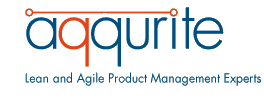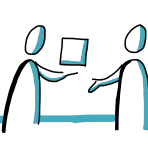At the end of my Certified Scrum Product Owner classes I often ask the participants to summarize their learnings from the class by writing down advice to someone starting up as a Product Owner in Scrum. The collected advice is often good. The insights shown by the participants are impressive. You can find the top advice together with my comments below.
Advice to a new Product Owner in Scrum:
Use time to understand the role
- The Product Owner role in Scrum is special. We are not talking about a product manager, we are not talking about a business analyst, neither are we talking about a technical lead
- It will probably take some time to fully understand how to best perform the Product Owner role. Use your time wisely. Among the things I would spend time on learning are:
-
-
- Product Discovery as described by Marty Cagan
- Lean Startup principles
-
Understand other roles and the Scrum framework
- The Product Owner is a collaborative role. Collaborating mainly with the other Scrum roles of Team and ScrumMaster. All the collaboration takes place within the Scrum Framework. Thus I recommend learning about the other roles and also about the Scrum Framework, it’s meetings and it’s artifacts.
Make sure that you spend enough time to perform the role
- It takes time to perform the role of the Product Owner well. Not only is it your responsibility to represent the stakeholders, you also need to be available to the team to clear out questions and facilitating their inspect and adapt loops. Representing stakeholders is time consuming as is collaboration with the team.
Focus on communication
- This may be the most important advice. Time after time I see it proven: communication is essential to be succesful as a Product Owner. You need to communicate with both your Stakeholders and the teams developing your product, And remember: communication goes both ways, you need to listen as well as talk and inform.
Be sure to know and understand product and business needs
- This may go without saying. After all your role is about maximizing the ROI of the product. IMHO that means that I as a PO need to understand the product needs and opportunities as well as the business needs.
Get to know the Product Stakeholders
- If you want to successfully represent the stakeholders you need to know them and their needs. You need to know the opportunities thy want to pursue as well as there requests.
Be very systematic in your role
- This is important. Especially when being involved in the continuous refinement of the Product Backlog. One of the big responsibilities for the PO is to make sure that the top items on the Product Backlog are ready for Sprint Planning. That way you make sure the team can keep busy and that they do not have to look for work.
Dare to demand – stand up for your role
- Being a good Product Owner means that you need to ask for things. It also means that you will have to say no. Not only once but probably often. Your job is to make sure that your product is successful and bring in lots of value.
Continuously refine and update Product Backlog together with Stakeholders and Team
- As stated before. Always make sure that the items on top of the Product Backlog are ready for Sprint Planning. That means that they need to be refined and broken down to an appropriate level and that they are well understood by the team.
What is your experience? Do you have any advice for a new Product Owner? Please add your comments and advice.
You may find value in the following at the Scrum Alliance website: Advice for New Product Owners

